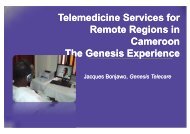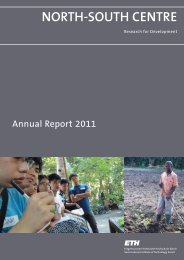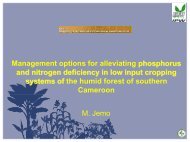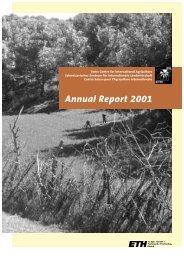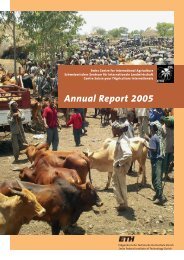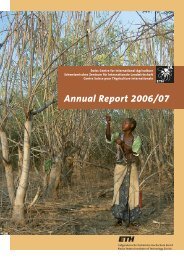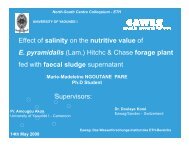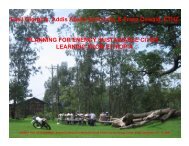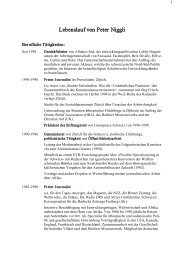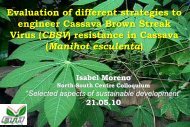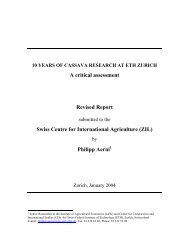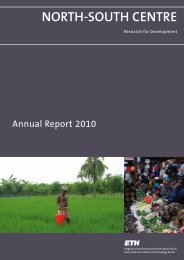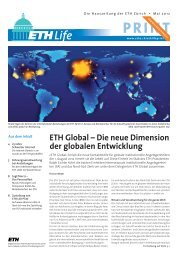NORTH-SOUTH CENTRE - ETH - North-South Centre North-South ...
NORTH-SOUTH CENTRE - ETH - North-South Centre North-South ...
NORTH-SOUTH CENTRE - ETH - North-South Centre North-South ...
Create successful ePaper yourself
Turn your PDF publications into a flip-book with our unique Google optimized e-Paper software.
Environmentally forced migration and drought in Mexico<br />
Professor Úrsula Oswald Spring of the National University<br />
of Mexico lectured on environmental and social problems<br />
in Mexico that have added to the complexity of reasons for<br />
international migration and, consequently, to the number<br />
of illegal immigrants in the USA.<br />
The erosion of social cohesion and networks related to migration,<br />
the loss of livelihood, the illegal crossing with the<br />
help of transnational criminal gangs, and the US policy of<br />
deportation have created a situation of low intensity war.<br />
Úrsula Oswald Spring concluded that cooperation instead<br />
of repression, and development activities that improve<br />
livelihood in remote rural areas, could avoid the rise of<br />
criminal behaviour.<br />
www.ied.ethz.ch<br />
From outreach to partnership: Defining the role of universities<br />
in achieving sustainability A workshop organised by the Alliance<br />
for Global Sustainability and hosted by the Competence Center<br />
Environment and Sustainability of the <strong>ETH</strong> Domain.<br />
Problems of sustainability are complex, multi-disciplinary and<br />
value-laden. Academic institutions are in a unique position to<br />
assemble whatever expertise may be needed for understanding<br />
such problems. Sustainability research should be directed<br />
primarily towards finding solutions and bringing about change,<br />
which requires conceptual advances in our understanding<br />
of how environmental, technological and societal systems<br />
interact. Adapting solutions to particular circumstances call<br />
for collaboration between researchers and local actors.<br />
At the workshop, participants from academia and non-academic<br />
organisations discussed how universities and researchers<br />
could improve their partnerships with non-academic stakeholders.<br />
The participants found that for new knowledge to be<br />
used effectively, it must be relevant to the problem in question,<br />
and accessible and credible to the user. Ensuring this requires a<br />
continuing dialogue between researchers and actors in society.<br />
www.ags.ethz.ch/partnership<br />
109<br />
Networking and communication<br />
Conferences<br />
Professor Úrsula Oswald Spring, National University of Mexico,<br />
key speaker at a public lecture organised jointly with the IED



